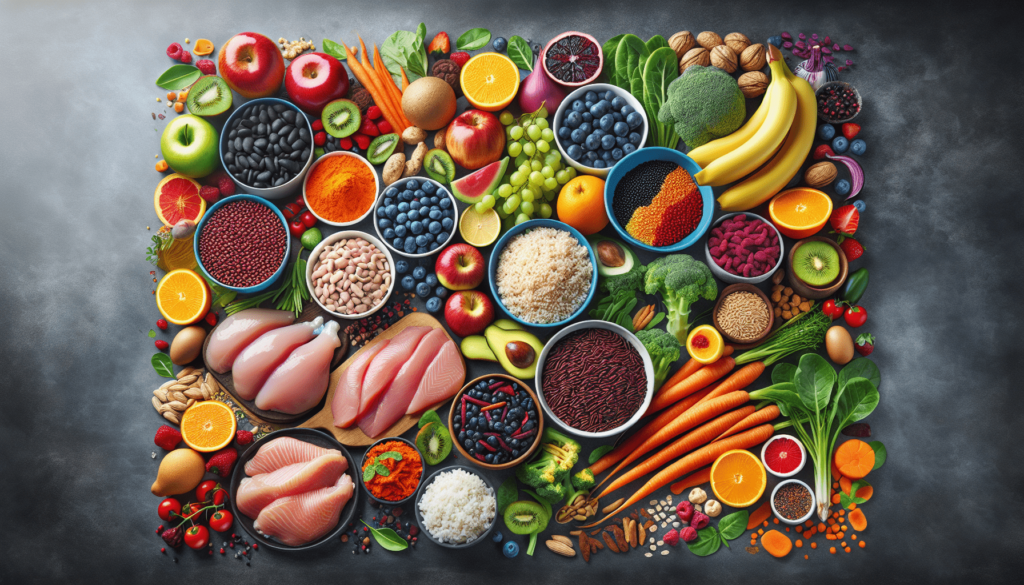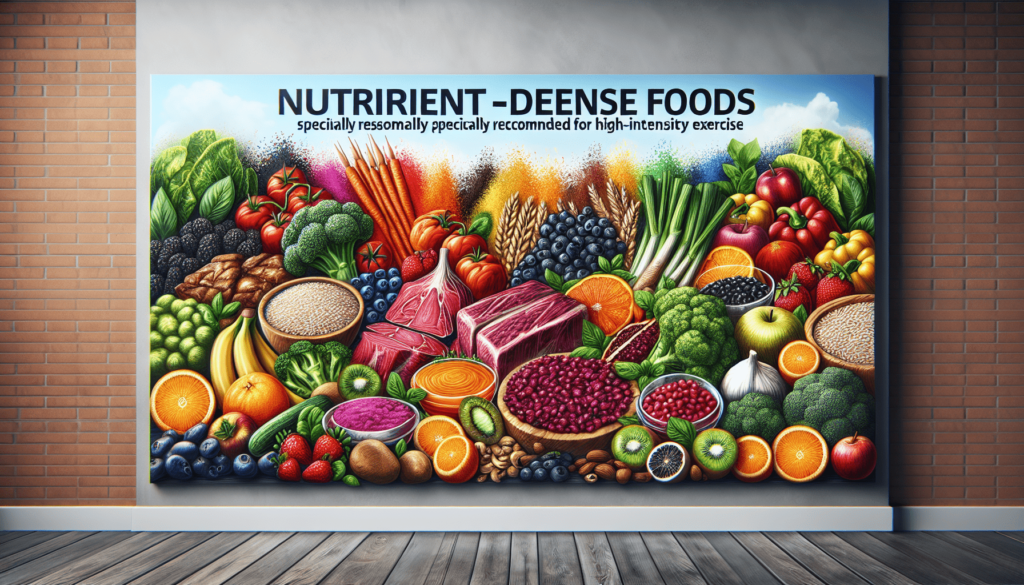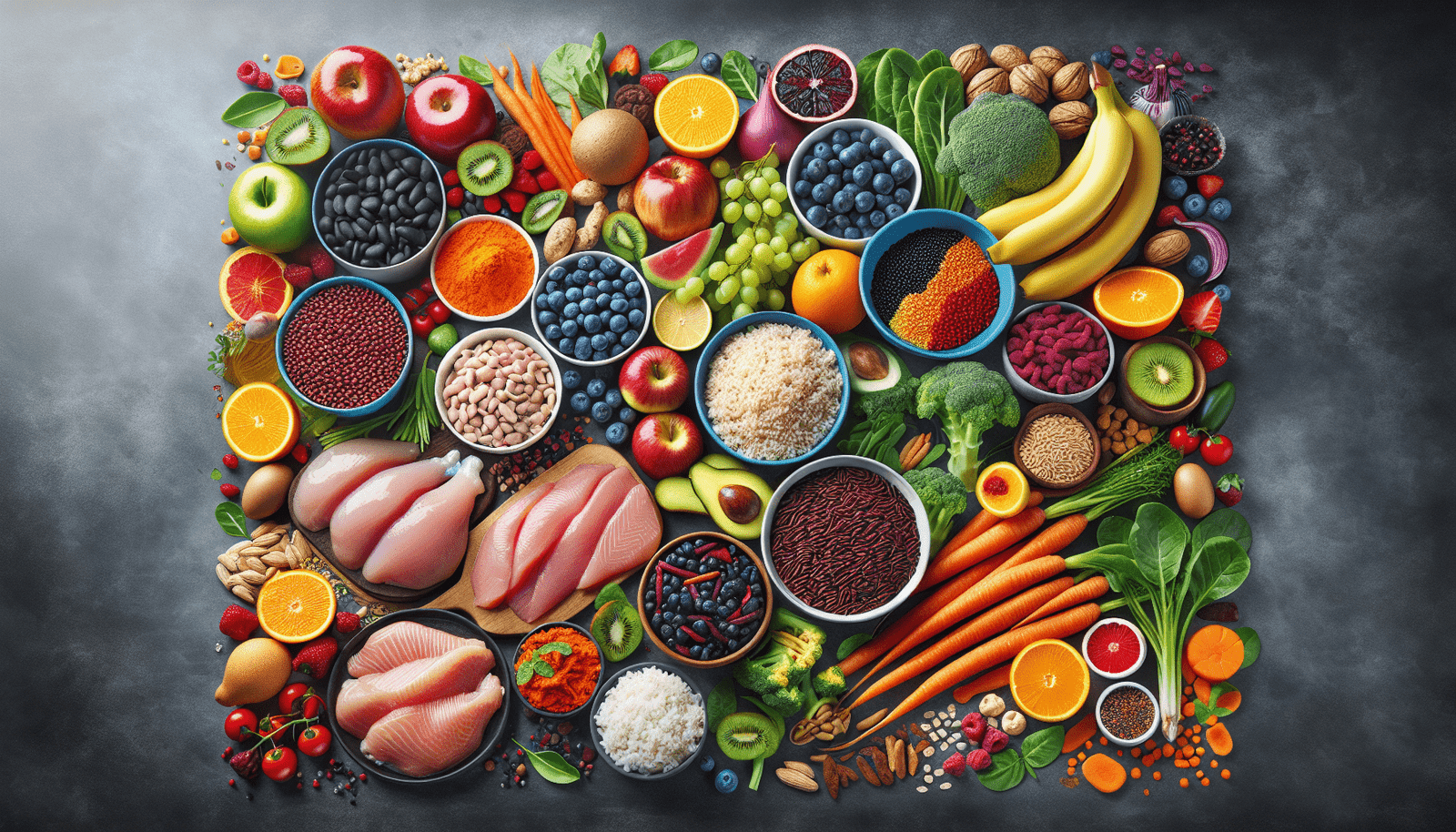Are you looking to optimize your nutrition for high-intensity training?
If you’re someone who loves pushing yourself to the limit with high-intensity workouts, you know how important it is to fuel your body properly. In this article, we’ll discuss the best nutritional practices to support your high-intensity training regimen and help you perform at your best. Let’s dive in and explore how you can optimize your nutrition for maximum performance and recovery.
Understanding the Basics of High-Intensity Training
Before we jump into the specifics of nutrition, it’s essential to understand the basics of high-intensity training. High-intensity training involves short bursts of intense exercise followed by periods of rest or lower intensity. This type of training is known for its effectiveness in improving cardiovascular fitness, building muscle, and burning fat.
When you engage in high-intensity training, your body requires an ample supply of energy to fuel your workouts. This is where proper nutrition comes into play. By providing your body with the right mix of macronutrients (carbohydrates, proteins, and fats) and micronutrients (vitamins and minerals), you can enhance your performance, improve your recovery, and achieve your fitness goals.
Why Nutrition is Crucial for High-Intensity Training
Nutrition plays a critical role in high-intensity training for several reasons. Firstly, the right balance of macronutrients provides the energy your muscles need to perform at their best during intense workouts. Secondly, proper hydration is essential for maintaining optimal performance and preventing dehydration. Finally, adequate recovery nutrition helps replenish glycogen stores, repair muscle tissue, and reduce the risk of injury.
By paying attention to your nutrition before, during, and after high-intensity training sessions, you can improve your overall athletic performance, enhance your recovery, and support your long-term health and well-being.
Pre-Workout Nutrition Strategies
The key to a successful high-intensity training session is proper fueling before you hit the gym. Pre-workout nutrition plays a crucial role in providing your body with the energy it needs to power through intense workouts and maximize your performance. Here are some strategies to optimize your pre-workout nutrition:
Timing is Everything
It’s essential to time your pre-workout meal or snack appropriately to ensure that you have enough energy to power through your workout without feeling sluggish or fatigued. Aim to eat a balanced meal containing carbohydrates, proteins, and fats 2-3 hours before your workout. If you’re short on time, opt for a light snack containing easily digestible carbohydrates and a small amount of protein 30-60 minutes before your workout.
Choose the Right Foods
When it comes to pre-workout nutrition, focus on consuming foods that are rich in complex carbohydrates, lean proteins, and healthy fats. Complex carbohydrates like whole grains, fruits, and vegetables provide a sustained source of energy, while lean proteins help repair and build muscle tissue. Healthy fats, such as those found in nuts, seeds, and avocados, can provide additional energy and support overall health.
Stay Hydrated
Hydration is key to optimal performance during high-intensity training sessions. Make sure to drink plenty of water throughout the day leading up to your workout to stay hydrated. If you’re engaging in particularly intense exercise or working out in hot weather, consider consuming an electrolyte-rich sports drink to replenish lost fluids and minerals.
Sample Pre-Workout Meal Plan
Here’s a sample pre-workout meal plan to help you fuel up for your high-intensity training session:
| Meal | Food Choices |
|---|---|
| Breakfast (2-3 hours before workout) | Oatmeal with fresh berries, Greek yogurt, and almonds |
| Snack (30-60 minutes before workout) | Banana with almond butter or a protein shake |
By following these pre-workout nutrition strategies and choosing the right foods, you can optimize your energy levels, enhance your performance, and maximize your gains during high-intensity training sessions.

Fueling Your Workouts: Intra-Workout Nutrition Tips
During high-intensity training sessions, your body’s energy demands increase significantly, making it essential to fuel your workouts with the right nutrients. Intra-workout nutrition refers to the consumption of carbohydrates, proteins, and fluids during exercise to maintain energy levels, prevent fatigue, and support muscle recovery. Here are some tips for fueling your workouts with optimal intra-workout nutrition:
Consume Carbohydrates for Energy
Carbohydrates are your body’s primary source of energy during intense exercise, making them essential for fueling your workouts. Choose easily digestible carbohydrate sources like energy gels, sports drinks, or dried fruit to maintain blood sugar levels and support endurance during high-intensity training sessions.
Incorporate Protein for Muscle Recovery
While carbohydrates are crucial for energy, protein plays a key role in muscle repair and recovery during high-intensity training. Consuming a small amount of protein during your workout can help prevent muscle breakdown and support muscle growth. Consider packing a protein-rich snack like a protein bar or Greek yogurt for longer workouts.
Hydrate Regularly
Proper hydration is essential for maintaining performance and preventing dehydration during high-intensity training sessions. Drink water or a sports drink regularly throughout your workout to replenish lost fluids and electrolytes. Pay attention to your thirst and urine color as indicators of hydration status.
Sample Intra-Workout Nutrition Plan
Here’s a sample intra-workout nutrition plan to help you stay fueled and hydrated during your high-intensity training sessions:
| Nutrition | Food Choices |
|---|---|
| During Workout | Energy gel or sports drink every 20-30 minutes |
| Protein Snack | Protein bar or Greek yogurt during longer workouts |
| Hydration | Water or electrolyte-rich sports drink throughout workout |
By incorporating these intra-workout nutrition tips into your high-intensity training routine, you can optimize your energy levels, support muscle recovery, and enhance your overall performance during intense workouts.
Post-Workout Recovery Nutrition Strategies
After completing a high-intensity training session, your body requires proper nutrition to recover, repair muscle tissue, and replenish energy stores. Post-workout recovery nutrition plays a crucial role in optimizing recovery, reducing muscle soreness, and enhancing gains from your training. Here are some strategies to maximize your post-workout nutrition:
Refuel with Quality Carbohydrates
Immediately after your high-intensity training session, refuel your muscles with quality carbohydrates to replenish glycogen stores and support recovery. Choose fast-digesting carbohydrates like white rice, pasta, or fruit to restore energy levels and kick-start the recovery process.
Prioritize Protein Intake
Protein is essential for repairing and building muscle tissue after high-intensity training sessions. Ideally, aim to consume a mix of fast-digesting and slow-digesting proteins like whey protein powder and chicken breast to support muscle recovery and growth. Consider consuming a protein-rich meal or shake within 30-60 minutes post-workout for optimal recovery.
Rehydrate and Replenish Electrolytes
Proper hydration is crucial for facilitating recovery and preventing dehydration following intense exercise. Drink plenty of fluids post-workout to replenish lost fluids and electrolytes. Consider adding electrolyte-rich foods like coconut water or a sports drink to your post-workout meal to support hydration and recovery.
Sample Post-Workout Recovery Meal Plan
Here’s a sample post-workout recovery meal plan to help you refuel and recover after a high-intensity training session:
| Meal | Food Choices |
|---|---|
| Post-Workout Shake | Whey protein powder with banana and almond milk |
| Post-Workout Meal | Grilled chicken breast with quinoa and roasted vegetables |
By following these post-workout recovery nutrition strategies and prioritizing quality carbohydrates, protein intake, and hydration, you can optimize your recovery, reduce muscle soreness, and maximize the benefits of your high-intensity training sessions.

Supplements for High-Intensity Training
While a balanced diet rich in whole foods is essential for optimizing your nutrition for high-intensity training, certain supplements can also support your performance, recovery, and overall health. When used strategically, supplements can help fill nutrient gaps, enhance energy levels, and improve exercise performance. Here are some recommended supplements for high-intensity training:
Creatine
Creatine is a popular supplement known for its ability to increase muscle energy stores, improve strength, and enhance high-intensity exercise performance. Consider taking creatine monohydrate as a pre-workout supplement to support muscle recovery and explosive power during intense workouts.
Branched-Chain Amino Acids (BCAAs)
BCAAs refer to three essential amino acids – leucine, isoleucine, and valine – that play a crucial role in muscle protein synthesis, recovery, and endurance during high-intensity training. Consuming BCAAs before, during, or after workouts can help reduce muscle soreness, prevent muscle breakdown, and support overall recovery.
Caffeine
Caffeine is a natural stimulant found in coffee, tea, and pre-workout supplements that can improve focus, endurance, and performance during high-intensity training. Consider consuming a moderate dose of caffeine before your workouts to enhance alertness, delay fatigue, and boost exercise performance.
Omega-3 Fatty Acids
Omega-3 fatty acids are essential fats found in fish oil, flaxseeds, and walnuts that play a crucial role in reducing inflammation, supporting cardiovascular health, and enhancing recovery. Consider supplementing with omega-3 fatty acids to improve joint health, reduce muscle soreness, and support overall well-being during high-intensity training.
Whey Protein
Whey protein is a high-quality protein source derived from milk that’s rich in essential amino acids, making it ideal for muscle recovery and growth after high-intensity training sessions. Consider consuming whey protein powder as a post-workout shake or snack to support muscle repair, reduce muscle soreness, and enhance gains from your workouts.
Conclusion: Optimizing Your Nutrition for High-Intensity Training
In conclusion, nutrition plays a crucial role in optimizing your performance, recovery, and overall health during high-intensity training. By following the best nutritional practices outlined in this article, you can fuel your workouts effectively, support muscle recovery, and achieve your fitness goals. Remember to prioritize pre-workout, intra-workout, and post-workout nutrition strategies, incorporate quality carbohydrates and proteins into your meals, and stay hydrated throughout your training sessions.
Whether you’re a seasoned athlete or just starting with high-intensity training, paying attention to your nutrition can make a significant difference in your results. By combining proper nutrition with consistent training and recovery practices, you can take your performance to the next level and unlock your full athletic potential. Here’s to fueling your body for success and achieving your fitness goals with high-intensity training!

